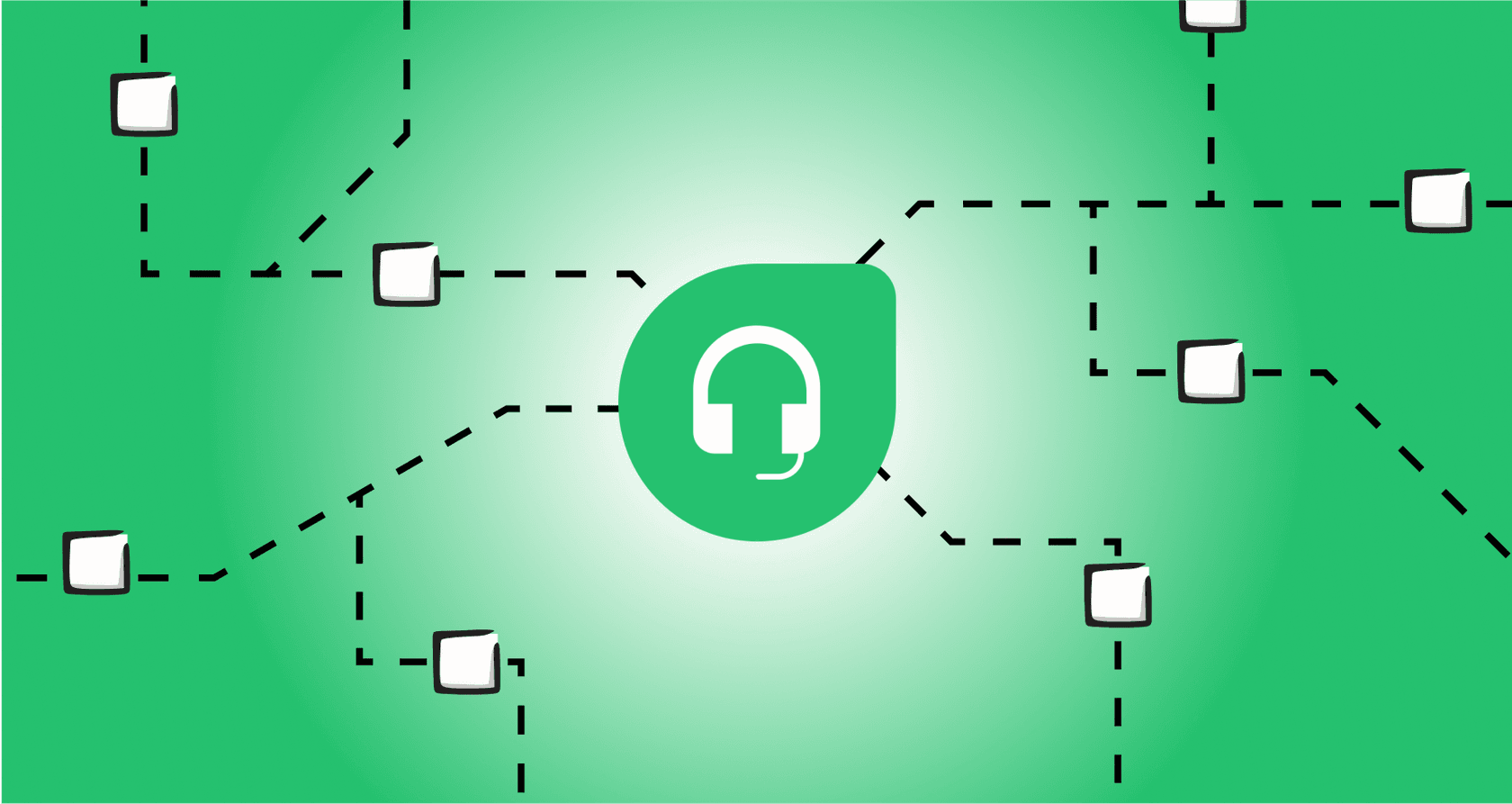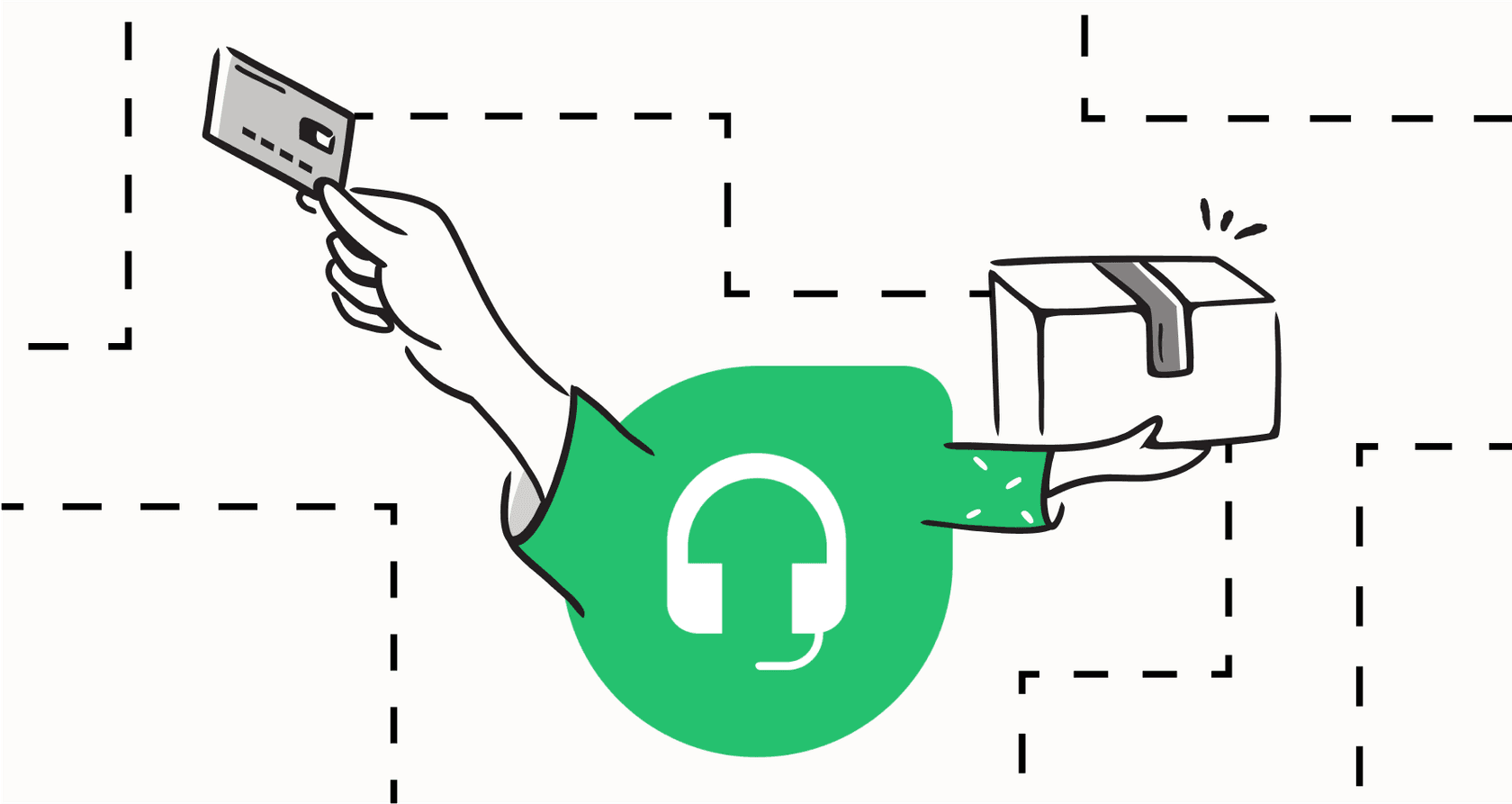A guide to the Freshdesk Shopify integration in 2026

Stevia Putri

Katelin Teen
Last edited January 16, 2026
Expert Verified

If you’re running support for an e-commerce brand, you know the drill. A customer emails asking, "Where's my order?" and the great tab-switching marathon begins. You hop from your helpdesk over to your Shopify admin, hunt for the customer's name, find their order, copy the tracking link, and then jump back to the helpdesk to finally paste it in a reply.
It’s a tiny task on its own, but when you multiply it by a hundred tickets a day, it adds up to a huge chunk of your team's time.
This is the exact headache the Freshdesk Shopify integration is meant to fix. By pulling your e-commerce data straight into your helpdesk, it promises to clean up your workflow and give your agents all the context they need in one place.
In this guide, we'll look at what the native integration does, what its best features are, and how you can optimize its performance. More importantly, we'll show you how to scale its capabilities by adding a smart AI layer to get you to true, hands-off support automation.
What is the Freshdesk Shopify integration?
Connecting your helpdesk to your e-commerce platform is one of the first things you should do to create a smooth customer experience. It breaks down the walls between your support team and your business operations, making sure agents have what they need without having to ask for it.
What is Freshdesk?
Freshdesk is a cloud-based customer support tool that helps businesses manage conversations from email, phone, social media, and chat. It's a reliable central hub for customer questions, designed to keep every ticket organized and accessible.
And what is Shopify?
Shopify is one of the biggest e-commerce platforms out there. It gives entrepreneurs all the tools they need to build and run an online store, from product pages and inventory to payments and shipping. If you sell anything online, you’ve probably used it.
How the native Freshdesk Shopify integration actually works
The Freshdesk Shopify integration is an app you install from the Freshworks Marketplace. Its main job is to link your Shopify store (or stores) to your Freshdesk account. Once it's set up, it shows a customer's order history and other key details right inside the Freshdesk ticket. The goal is simple: help agents find basic information quickly without needing to switch tabs.
Key features of the standard Freshdesk Shopify integration
The native app gives your support team some solid tools to handle common e-commerce questions a lot faster. Here’s a quick look at what you can do right out of the box.
All your customer and order info in one spot
The biggest win here is having customer and order information right where you need it. When an agent opens a ticket, they can instantly see the customer’s recent orders, shipping status, payment details, and contact info. This immediate context saves a ton of time and lets agents focus on solving the problem instead of digging for information.
Manage orders right from the ticket
The integration isn't just for looking at data; it lets agents take action. You can process full or partial refunds and cancel orders directly from the Freshdesk widget. This allows agents to resolve common requests in one go, which is great for your resolution times and keeps customers happy.
Canned responses
To speed things up even more, you can create canned responses that use special Shopify placeholders. Think of them as dynamic shortcuts. Instead of manually looking up an order number or tracking URL, you can just pop a placeholder like "{{last_order_tracking_url}}" into a template. When an agent uses that response, Freshdesk automatically fills in the correct info from Shopify, helping you send quick and accurate updates.
Support for multiple stores
If your business runs multiple Shopify stores for different brands or regions, the integration can handle it. You can connect all of your stores to a single Freshdesk account. This gives your support team a complete view of every customer's history, no matter which storefront they bought from, which helps provide a seamless experience.
Scaling your support with the Freshdesk Shopify integration and AI
While the native integration provides a solid foundation, customers in 2026 often look for instant, smart answers. By layering advanced AI over the standard setup, you can unlock even more potential. Here is how you can build on the existing functionality.
Bringing in more context and knowledge
The integration is great at pulling order data from Shopify. To make your support even more powerful, you can connect it with other knowledge sources. Often, the information your team needs to solve complex problems might be in Google Docs, Confluence, or your public help center.
While the native integration focuses on Shopify data, you can expand this by using Freshdesk's native AI, Freddy. To further bridge the gap between Shopify and your external technical specs or internal guides, many teams choose to add a complementary tool like eesel AI to ensure every agent has the full picture.
Optimizing automation workflows
The Freshdesk Shopify integration is a fantastic tool for making humans work faster. You can take this further by moving toward proactive automation.
By using advanced AI, you can help your system understand the nuance in a customer's question and figure out the best way to respond. For example, instead of just displaying order data, an AI-enhanced setup can troubleshoot a product issue by referring to a help center article or automatically escalating specialized queries to the right human expert.
Exploring Freddy AI and eesel AI options
Freshdesk offers its own AI, Freddy, to help teams scale. The Freddy AI Copilot is an available add-on that helps agents write replies and manage workflows effectively for an additional monthly fee.
Freddy AI is a strong tool for information within the Freshdesk ecosystem. If your team uses many external platforms like Google Docs or Confluence, a solution like eesel AI serves as a great complementary option. It connects to all your knowledge sources right away, working alongside your Freshdesk setup to provide comprehensive answers from day one.
How to get more from your Freshdesk Shopify integration with AI
By adding a dedicated AI layer on top of your existing Freshdesk and Shopify setup, you can build a genuinely intelligent and automated support system.
Bring all your knowledge together
This is the most important step. A platform like eesel AI acts as a central brain for your support operation. It connects not only to Freshdesk and Shopify, but also to over 100 other sources like Google Docs, Confluence, and your help center.
This gives the AI a complete picture of your business. It can answer a much wider range of questions because it has access to the same information your best human agents do.
Get total control with a custom workflow engine
With eesel AI, you get fine-grained control to decide exactly which types of tickets the AI should handle. You can start by automating simple "where is my order" questions and have the AI pass specialized inquiries to your team.
The AI can also perform custom actions. It can make real-time calls to Shopify to check inventory, update ticket fields in Freshdesk to keep your data tidy, or even create a new issue in Jira for your engineering team. This kind of dynamic, cross-platform action makes your Freshdesk setup even more versatile.
graph TD A[Customer Ticket Received in Freshdesk] --> B{AI Analyzes Ticket Intent}; B --> |"Order Status Question"| C[AI Queries Shopify for Order Info]; C --> D[AI Drafts and Sends Reply]; D --> E[AI Closes Ticket]; B --> |"Complex Product Issue"| F[AI Searches Knowledge Base]; F --> G{Solution Found?}; G --> |Yes| D; G --> |No| H[AI Escalates to Human Agent];
Go live in minutes with a self-serve setup
Putting AI in place is a straightforward process. eesel AI is completely self-serve, allowing you to sign up and connect your tools in just a few minutes.
You can also use simulation mode to test your setup on past support tickets in a safe environment. This lets you see exactly how the AI would have responded, giving you the confidence to launch with a clear picture of the results from the start.
Pricing breakdown: Freshdesk and AI options
It's important to understand your options when picking a support solution. Freshdesk offers tiered plans to match different team sizes and needs.
Freshdesk pricing and its AI add-ons
Freshdesk’s pricing offers various levels of functionality. The AI features are available as add-ons to help you customize your plan based on your needs.
| Plan | Base Price (per agent/mo, billed annually) | Freddy AI Copilot Add-on | Total Cost (per agent/mo) |
|---|---|---|---|
| Pro | $49 | +$29 | $78 |
| Enterprise | $79 | +$29 | $108 |
Note: This provides a robust suite of features for growing and enterprise-grade teams.
The eesel AI advantage: Simple, all-inclusive pricing
The pricing for eesel AI is designed to be straightforward. Instead of charging per agent, plans are based on the number of AI interactions each month. Every plan includes all the core products: AI Agent, Copilot, Triage, and more.
This model lets you scale up your automation with predictable costs, making it a great companion to your existing Freshdesk subscription.
Go beyond the basic Freshdesk Shopify integration to smart automation
The native Freshdesk Shopify integration is a great first step. It brings your data into one place and makes your human team more efficient by saving them time on manual data entry.
To further improve your support and deliver the instant service customers expect in 2026, you can move toward smart, end-to-end automation. An AI platform like eesel AI adds a complementary layer of intelligence and knowledge that helps turn your support into a real asset for your business.
Ready to see what real automation looks like? Start your free eesel AI trial or book a demo to see how you can level up your Freshdesk and Shopify setup.
Frequently asked questions
The native Freshdesk Shopify integration connects your Shopify store to Freshdesk, allowing agents to view customer order history, shipping status, payment details, and contact information directly within a ticket. This consolidates key e-commerce data in one place, reducing tab-switching and improving efficiency.
Yes, the integration enables agents to process full or partial refunds and cancel orders directly from the Freshdesk widget. This streamlines common customer requests and helps improve resolution times by allowing agents to take immediate action within the helpdesk.
Absolutely. The Freshdesk Shopify integration supports multiple stores, allowing you to connect all your Shopify storefronts to a single Freshdesk account. This provides your support team with a unified view of customer history across all brands or regions, preventing repetitive conversations.
The standard Freshdesk Shopify integration is excellent for pulling in order data. To pull in context from additional knowledge sources like Google Docs, Confluence, or past tickets, you can add a complementary AI layer to further enhance your team's capacity to troubleshoot complex issues.
You can enhance your Freshdesk Shopify setup by integrating a dedicated AI layer, such as eesel AI, which connects to all your knowledge sources. This allows the AI to understand nuanced customer questions, provide comprehensive answers, and even perform custom actions like checking inventory or updating ticket fields, going beyond simple data display.
Freddy AI offers helpful assistance by working with information contained within Freshdesk and Shopify. For teams that want to bridge knowledge from a wider variety of external platforms, adding a solution like eesel AI can provide an even more comprehensive automation experience across all your tools.
Share this post

Article by
Stevia Putri
Stevia Putri is a marketing generalist at eesel AI, where she helps turn powerful AI tools into stories that resonate. She’s driven by curiosity, clarity, and the human side of technology.




